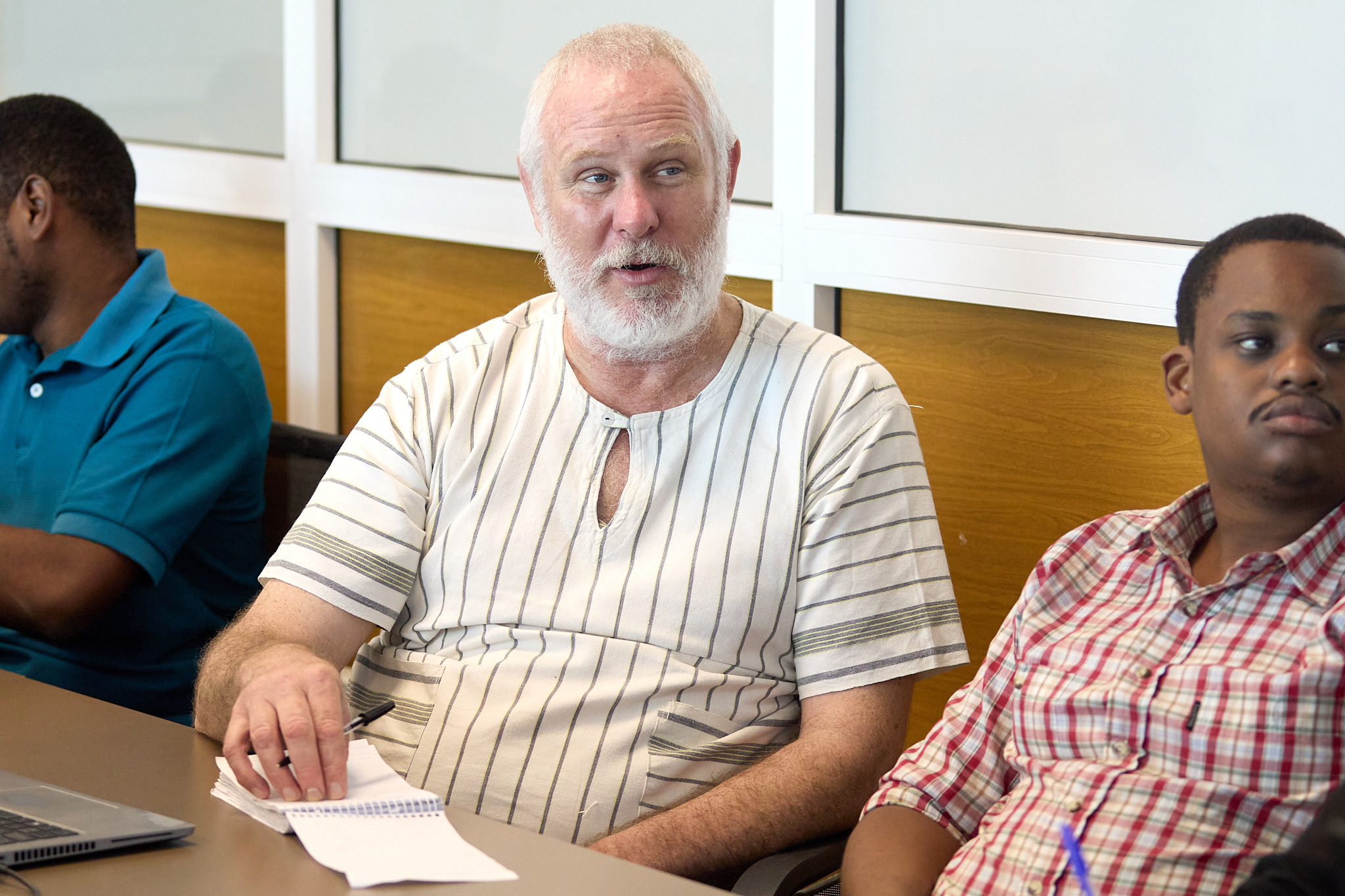
MENTORSHIP: Irish University professor shares inspirational insights with young data scientists

From 5-16 May 2025, the Ifakara Health Institute’s Data Science and Mathematical Modelling team had the rare privilege of hosting Professor Gerry Killeen – the AXA Research Chair in Applied Pathogen Ecology at the University College Cork, Ireland – at their offices in Dar es Salaam.
The goal of the visit was simple yet powerful: to tap into Prof. Killeen’s decades of experience in malaria biology, vector control and data analysis. The young scientists took full advantage of the opportunity – presenting their individual projects and receiving in-depth, constructive feedback from a mentor whose work has shaped malaria control efforts across Tanzania and beyond.
A mentor who knows the terrain
Before joining the University of Cork, Prof. Killeen spent nearly 17 years at Ifakara, where he established what is now the Environmental Health and Ecological Sciences (EHES) Department. His contributions include support to national malaria control programmes and the creation of the Dar es Salaam City Council Urban Malaria Control Programme – a locally managed initiative that has since become a model for scaling up environmentally friendly larval source management nationwide. His career has focused on quantitative ecology, community-based public health, and capacity building at all levels – individual, institutional, and national.
Reflections from the team
For the young scientists, the mentorship was as inspiring as it was practical. Gerald Kilwehu, a research scientist within the data team, shared how Prof. Killeen encouraged them to shift their thinking: “Dr. Killeen really encouraged us to think outside the box. He pushed us to imagine worst-case scenarios in our models – and then challenged us to find methods to close those gaps. That kind of thinking completely shifts how you approach research.”
Another team member, John Gaddiel, thanked Prof. Killeen for sharing his knowledge so generously: “The sessions were incredibly enlightening. I picked up new techniques on how to structure my research, and I’m already planning how to apply those insights in my upcoming work.”
One-on-one sessions ahead, a commitment to continuous learning
After the presentations, each member of the team will have the opportunity to engage in one-on-one sessions with the malaria expert. Research scientist Agricola Minja expressed that she looks forward to this session as it will give her the opportunity to have in-depth discussions on the specific challenges faced in her work.
The visit was a clear reflection of Ifakara’s commitment to continuous learning—creating space for its scientists to grow, adapt, and find new ways to tackle real-world health challenges. With Prof. Killeen’s guidance, the team not only built on their technical skills but also developed a stronger sense of purpose and connection to the impact of their work.
